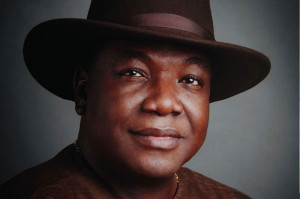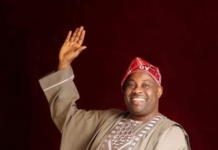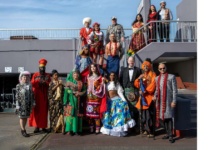THIS week the department of Theatre at the University of Ibadan celebrates 50 years of Theatre in the African academy. The celebrations mark fifty years of formal Theatre training in Africa, the University of Ibadan being the first of such in the whole of the continent. In those years, graduates of the department have provided high value leaderships in Theatre, Music, Advertising, Film, Radio and Television, Print Journalism, Politics, Business, Civil service, International Diplomacy, Academics and even institutional religion. They have served both country and the world with vision and distinction, wielding major global influence.
Earlier in the year, Professor Wole Soyinka – Africa’s first Noble Prize winner in Literature and an early head of the University of Ibadan School of Drama had opened the celebrations with a public lecture. Now as the events of the week kicked off, Professor Abiola Irele – a one time actor on the Ibadan stage, who then went on to become a Professor of Comparative Literature at Harvard University, headlined the events with a Key note address. As an alumnus of the UI department, I have often bragged the pedigree of my alma maters – University of Ibadan (my African Ivy league in Theatre) and Yale University (my American Ivy League in Drama). The combined depth and quality of Ibadan’s training continue to ring loud and strong on the global stages we have found ourselves! Yet on this same week, we are reminded of one of the most unnerving ironies of being Nigerians. This great irony rests on the fact that our country is one where the potential for greatness is humongous but greatly dimmed by our government’s propensity for mediocrity, cronyism, corruption, violence and greed. Amidst the pomp of what is tagged the ‘Homecoming’ at Ibadan this week, one hopes that there are new and pragmatic strategies for resolving the combative challenges that our art, our professional calling and our cultural accounts, demand of us!
Nigerian Theatre suffers from what I call “Neo-malice’. Malice is the expressed and actualized desire for evil, where evil is not religion specific, but a cultural and political affliction. Theatre as we must emphasize, is defiant of normative constructs. Instead of patterns of order, which other fields observes, theatre distinguishes itself by its core fascination with explorations of entropy and disorder. African performance, says Kenyan writer and activist Ngugi Wa Thiong’o, was the first to be assaulted by the cultural forces of colonialism, to give space for the construction of a colonized being. That was the first ‘malice’. Initially our immediate post-colonial response in Nigeria led the rest of African Theatre with an added urgency. Wole Soyinka, Hubert Ogunde, Femi Osofisan, Ola Rotimi, Zulu Sofola, Bode Osanyin, Ben Tomoloju and many first runners of Nigerian Theatre proved this, not only through their plays, but also to the extent of their activist roles as our collective social conscience. As dreamers we seek to create utopias. But their fervor, the commitment of the sixties, seventies and eighties has dimmed, our dreams atrophied as our apologetic generation stumbles along in stupor! Our lungs, our dreams are clogged with gluttonous portions of self-centeredness, sycophancy and cowardice. We are now so afraid to speak the truth to ourselves, much so to anyone we deem to be in some form of power. So we are doubly colonized and we perpetuate this evil upon our art, our profession.
Wa Thiong’o concludes his observation on a darker note, identifying the origins of the neo-malice in African, and more specifically Nigerian Theatre. “The same colonized being”, he says, has “mutated into a neo-colonial dictator, who sees theatre as a threat, and he often sends theatre practitioners into prisons (Ogunde, Soyinka), exile (Soyinka/Sowande et al), impoverishment or even death in some cases (Ken Saro Wiwa). These colonized beings mutating into dictators and politicians have progressively brought our Theatre academies and Theatre practitioners to their begging knees, dazed and comatose! But Theatre thrives. It cannot be killed either as text or practice. Theatre constructs our human encounters between knowing and unknowing participants, generating a spatial and experiential energy that is simultaneously catalytic and cathartic. It is not dissimilar to the basic run of life – inhaling and exhaling. We must breathe to stay alive, as our society must “theatre” to live.
Why is it that our appointed government officials and the artistic community they are called to serve, never meet for open, frank and deliberative collaborations? Why? In a sector of human engagement, where creativity and innovative thinking are the marks of the stakeholders, why is idiocy often foisted upon the artist of the theatre and upon the nation by uncivilized civil servants and miscast ministers, who hop from one poorly conceived ‘rebranding’ project to another! Carnivals, that self-inflicted minstrelsy from our Caribbean cousins, have suddenly become the obsessions of money gobbling administrations; their new tool for the cannibalization of our traditional festivals, dances, masquerades and of our rich pantheon. They seem content with turning the performance of theatre and the transmission of our culture into these shallow and inconsequential expressions of irrational spectacles. We on our part have dispersed into related fields and sometimes do not even want to be known as Theatre artists!
Edem Duke, the Minister of Culture is called to speak on the issue of whether the national theatre is being sold or not. The question is simply to find out what our government’s clear agenda for the development of Theatre in Nigeria will be, going forward. It is not as if the government and its officials are permanently and completely bereft of ideas. It just seems that the moments of visionary clarity are far in between the preponderance of mediocrity and blatant corruption.
Duke is in error when he assumes he and his private sector friends know best. He is in error when he believes he alone can survive the political rings being woven around him, without taking his constituency along. His attempt at some intentional conflation of the current problems will not suffice. In one breath he agrees with us when he says “the culture community does not have any other iconic infrastructural asset other than the National theatre”. Yet in a fit of neo-malice, he declares “the National theatre would translate into a leisure and entertainment centre, the first leisure and entertainment duty-free zone in West Africa”. What is a leisure and entertainment center? How is this so-called “leisure and entertainment center” different than a casino? How is this leisure and entertainment center the same as a national theater, like the National Theater of Great Britain in London or the Kennedy Center in Washington Dc? There is a good reason American mogul Donald Trump builds Casinos – leisure and entertainment centers – instead of Theatres. There is a reason American pornography business lord Flynt builds strip clubs and bars, never theatres. It is disingenuous to lump theatre in the same wool. We get it but does he?
I want to believe Duke does get it and he is indeed working hard to ensure the revitalization of Theatre in Nigeria. What we want therefore, what we know will work best for him, is to call for an open forum with Theatre artists in Lagos, Abuja or both, where he can explain the details of his plans and answer the questions the artists have. Just a simple and sincere collaborative gesture, an expression of mutual respect, not condescension, will do. He just might be surprised to know the number of Theatre artists who are on his side and who will defend his agenda, if they are truly in the best interest of the sector. Fifty years on after Ibadan, thirty-six years after the World Black Arts festival FESTAC, two decades and more after the establishment of the National Troupe of Nigeria, wasting our hard earned national legacy of Theatre has to stop.
Finally, our Academics and Theatre artists for most part can no longer remain safely segregated, each on their own side of the continually widening gap between theory and practice, between reflection and creation. The ‘Homecoming’ at Ibadan should be the rebirth of Theatre in Nigeria.









